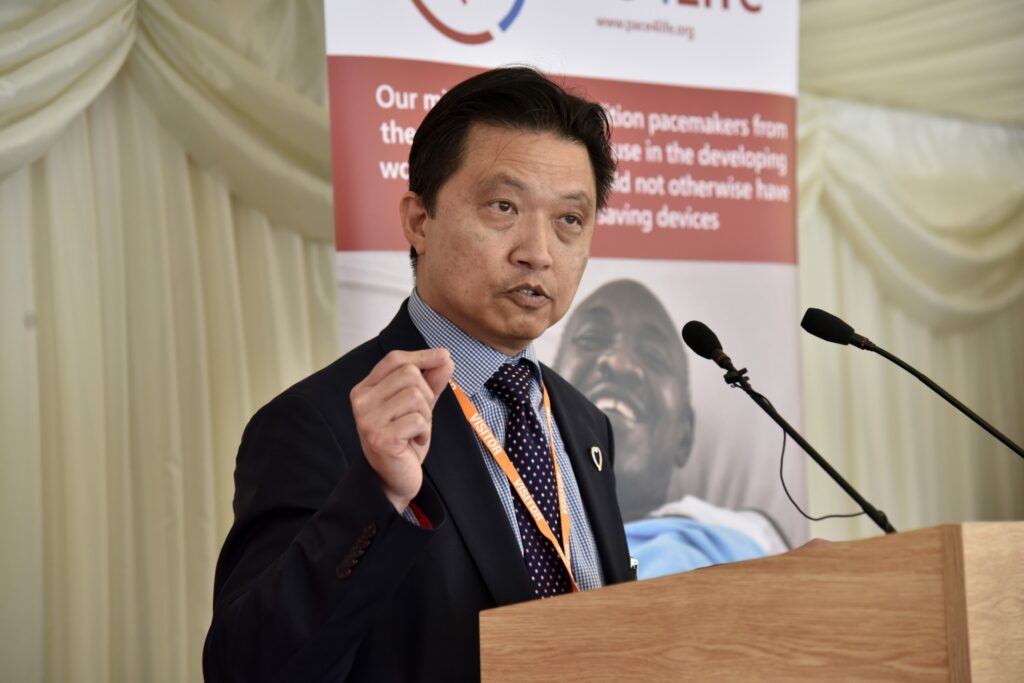Atrial Fibrillation (AF) is the most common heart rhythm disorder, affecting around one and a half million people in the UK, with a suspected quarter of a million people yet to be diagnosed. People with AF are five times more likely to have a stroke and if they do, it is likely to be more severe. It also causes heart failure and has a detrimental effect on the patient’s quality of life.
Yet across the UK there is variable access to the most effective treatments due to a combination of ineffective care pathways, delays in referral, and lack of access to one of the most effective treatments, cardiac ablation.
BCS President Professor André Ng joined Mrs Trudie Lobban MBE, the founder of Arrhythmia Alliance, at an event at the House of Commons to celebrate 21 years of the Alliance and call for better treatment for AF patients.
The event ‘One Heart, Many Rhythms: Awareness, Action, Advocacy’ took place on Wednesday 11 June 2025 and featured presentations on cardiovascular disease challenges and improvements, and examples of good practice.

Professor Ng talked about unlocking access to ablation treatment for AF patients, including how virtual wards and technology can improve patient outcomes. He underlined the importance of treating patients with acute AF with the appropriate treatment early, as otherwise they risk being sent back to primary care, creating further delays and more health risks.
At Glenfield Hospital where Professor Ng leads a team, increased focus and investment meant patients have been receiving the most effective treatments more quickly, reducing disability and health risks for patients, while reducing admissions and bed days, which saves the hospital money.
For one of the most effective treatments, ablation, the UK lags behind European countries, for example France and Germany, who have rates of ablation 3-5 times higher. In the UK, the lack of access is due to referral delays, inefficient care pathways, lack of NHS capacity, and lack of dedicated general anaesthetic provision for the procedure.
Professor Ng and the other speakers joined Mrs Lobban in calling on the NHS to implement best practice in care for AF patients to reduce heart failure, strokes and save more lives.
The event took place in Heart Rhythm Week, read more about the week’s focus.
